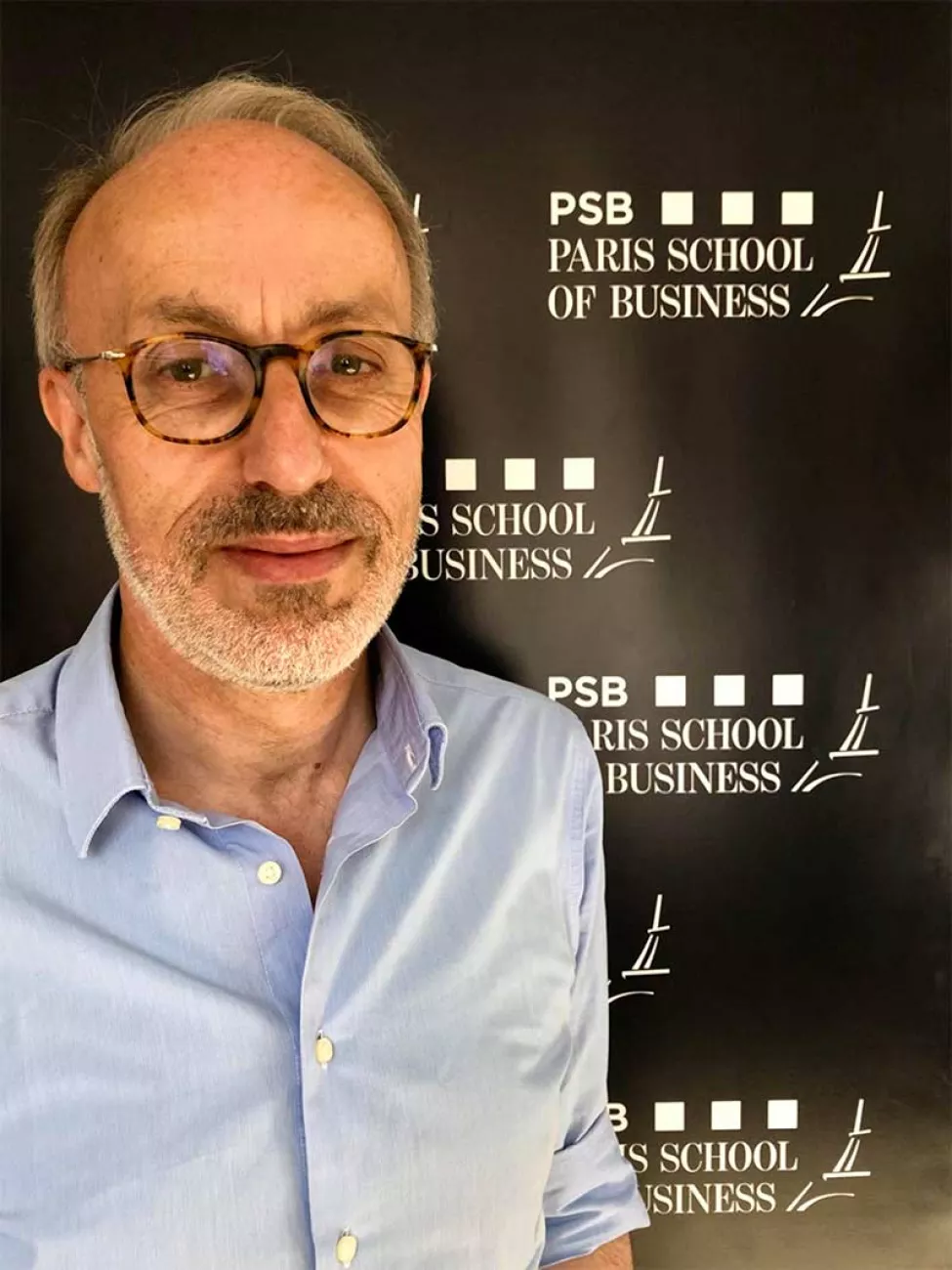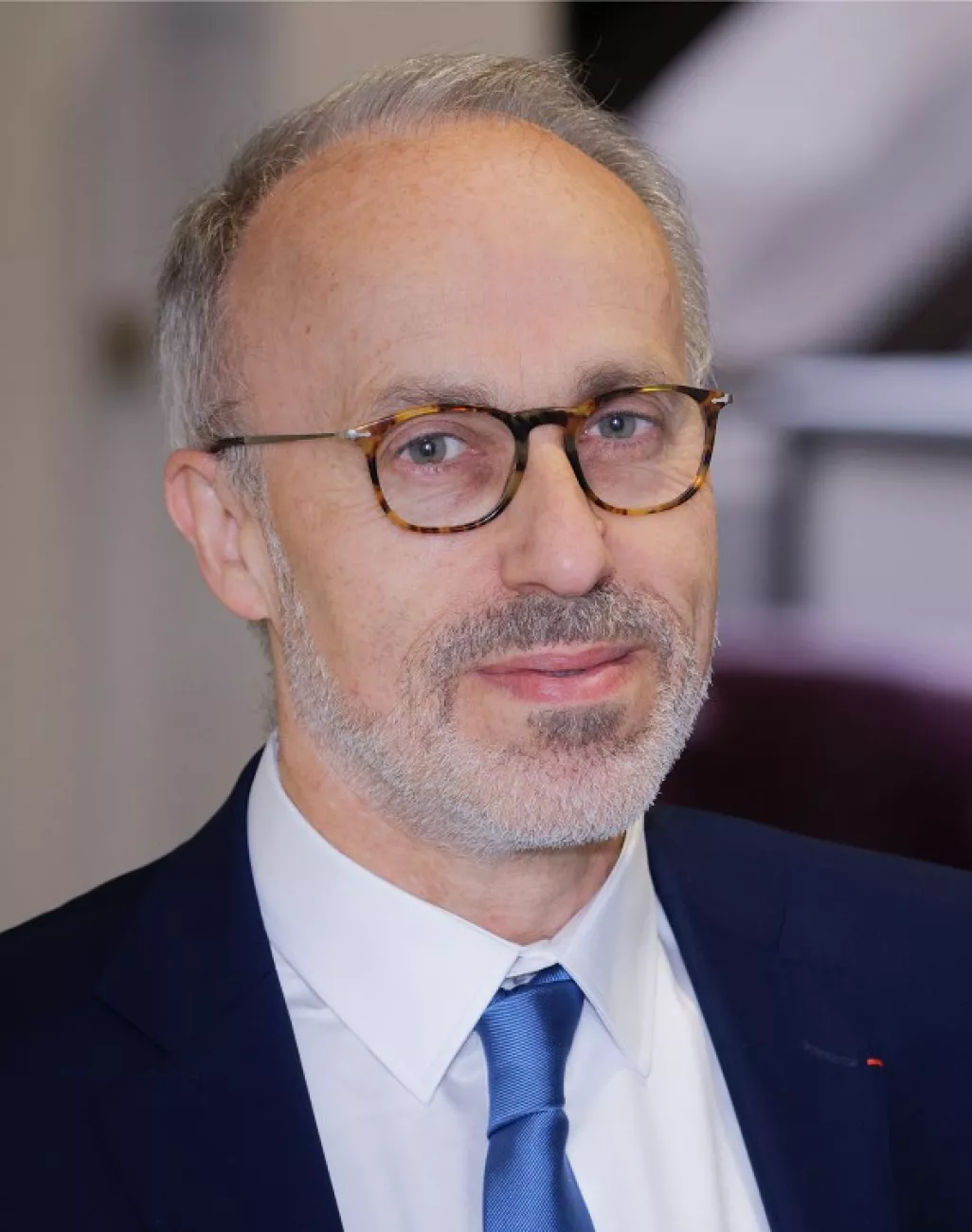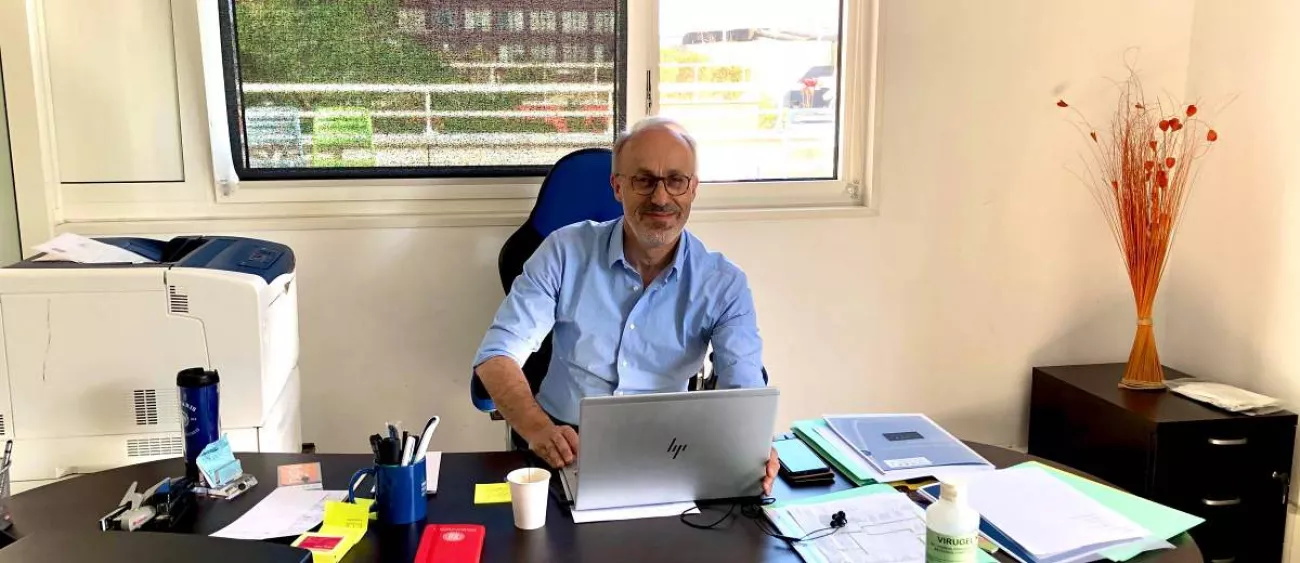Hello Mr Jamet, can you present yourself and your background?
Hello, I am a graduate of a major engineering school the Ecole des Mines in Paris, in Earth Sciences – Geology. Then I went to work in the private sector, at the Compagnie Générale des Eaux. But I was frustrated and I wanted to continue my studies, so I went back to school to get my PHD. I stayed at the Ecole des Mines for 17 years, because I developed a taste for research, training, etc. In the middle of my career, I felt the need to do a long international mobility, because it was missing from my experience. So I changed jobs and went to the United States, to the Ministry of Foreign Affairs where I spent 4 years.
« At this stage of my career, I am attracted to projects that make sense »
Nevertheless, I always thought that my path would lead me to direct an engineering school, because I felt that I had things to say about pedagogy, research, innovations of all kinds, and finally about the modernization of the grandes écoles model. On my return, I was offered the management of the Ecole des Mines in Saint-Etienne, which was subsequently integrated into the Institut Mines Télécom, which I took the helm of 6 years later. At the same time, I carried out a certain number of « union » activities in the service of the grandes écoles, with the presidency of a regional conference in Rhône-Alpes, and the presidency of the Conférence Nationale des Grandes Ecoles for two years. This experience of defending ans promoting the interests and strategy of the grandes écoles has enabled me to gain a better understanding of the university ecosystem and to take an interest, beyond the engineering schools, in the schools of management, arts and specializations. I am quite a mobile person, because I have moved 12 times, in France or abroad, so I am rather looking for geographical or situational mobility, and that is why I am very happy to be here!


How did you feel when you took office?
I have a lot of curiosity. I know that I am expected to achieve ambitious goals. This new professional challenge presents itself to me as a journey of discovery, interacting with colleagues who work in a different universe, be it in education, research or business model. I live this new step of exploration with enthusiasm. At this stage of my career, I am attracted to projects that make sense. I don't want to end my career like an oil tanker that has arrived in port, cutting the engines at the sight of the coast; but rather to sail out to sea, and I feel out to sea here, it smells of iodine!
Why did you take this job?
First of all because it corresponds to my professional wishes, while allowing me to synthesize the sectors I have explored during my career, which have always revolved around hybridization. I think that the grandes écoles have much better things to do than to pursue pure-player strategies. Thirty years ago, I created one of the first sustainable development training courses in France, a specialized Master's degree, and I got my engineering school to admit that it was necessary to recruit people from Sciences Po, business schools, architects, that it was necessary to mix audience: diversity is more than the addition of differences, it is truly transcendence, the creation of new value. I’m going to apply these principles to myself by immersing my DNA in a school that is different, because it’s a time of change for schools and for me, it’s in line with my background. Furthermore, I believe that the private sector has a strong potential to transform the university landscape. Today we need creativity, disruption, and entrepreneurial spirit in this academic industry, and I think that the private sector has more capacity to embody these changes.
« I don't want to end my career like an oil tanker that has arrived in port, cutting the engines at the sight of the coast; but rather to sail out to sea, and I feel out to sea here, it smells of iodine! »
What are your ambitions for Paris School of Business?
Major projects? First of all, there is an ambition in the strategic plan for quantitative growth that corresponds to the needs of companies and society. The major qualitative advances made by the Paris School of Business form the basis of this development, at the same time as they pave the way for further innovations and improvements to the student experience and educational offer. On a more personal note, my ambition is to anchor transversally in the school’s values. I think that the value promise of the Paris School of Business, the difference compared to the competition, is to be able to offer an enhanced school. That is to say, a strong business school base rooted in a group with the capacity to provide extremely innovative hybrid courses. This can take the form of « in-house » international mobility or new cross-disciplinary courses: le Cours Florent, Istituto Marangoni, or the opening up of new specializations such as in the biomedical and energy fields. The group represents a remarkable source of resources for the school. It is the meetings and hybridizations that create value, and it is this principle that I intend to apply to the Paris School of Business.
Obtaining the international Equis label is both a stimulating objective and consistent with the school’s pursuit of excellence. A very demanding objective, but in my opinion within the reach of the Paris School of Business. I intend to think big, even though I know there will be constraints. Resource constraints will have to be overcome by creativity and imagination.

An anecdote about your professional life?
I have a longtime friend who lives in Grenoble and who occasionally contacts me when he’s in Paris to have lunch together. One day, I receive a message from my friend asking me to lunch. I reply positively, of course, in a cheerful and friendly way. I notice that he doesn’t have the same number as usual, but I think that it’s his professional number.
On the day, I go to the restaurant but I can’t find my friend. However, there was a man I didn’t know who was gesturing at me. No reacting, he comes to me and says « Well Philippe you didn’t see me, we have a lunch date ». I’m sure it’s happened to you, you meet someone and you can’t tell who the person is. But this person knows you. You then have 10 minutes to have an unsuspecting conversation while at the same time setting in motion a process to find out who the other person is from very sketchy information. I start the process, and honestly I feel I had never seen it. I then realize that I have two lunches at the same time and in the same place, that I must have made a mistake in my address book because they both have the same first name. So there is this person I had obviously promise lunch, and my friend waiting for me in the same restaurant. I manage to identify the stranger and send a message to my friend to say I’m sorry to let him down. Surprised, I hear my guest’s mobile phone vibrate. He says to me "you've just sent me a message", and reads me the message I had just typed for my friend in Grenoble! At that precise moment, I realized my mistake, I understood that I had been evolving for 15 days in a tunnel of thoughts. This confusion of course created a chill and I had to use a lot of diplomacy to get out of this incident.
I give this anecdote because such confusions can happen to anyone. We have to be prepared for all kinds of unexpected events and the collapse of our certainties.
“Diversity is more than the addition of differences, it is truly transcendence, the creation of new value”
Any advice for students and future students?
First of all, I would advise them to take advantage from their studies. There is work to be done, which is ongoing, on the user experience. As I said earlier, the school are in a dynamic of supply: we put up a nice showcase, students come, we produce nice diplomas, companies buy. Now we can see that this industrial vision is less and less true because users are finally involved in the design of the product and even in its manufacture. The borders between designers, producers and consumers are now largely permeable. So I would also advise the students to consider their school as a field of creativity, to propose things, to be actors of the transformation, of the educational offer and of the way the school functions.
Paris School of Business in 3 words?
For me, it’s an open-air workshop. I fell that there is still an entrepreneurial atmosphere here. It is a huge sandbox, a privileged space for experimentation and development.


